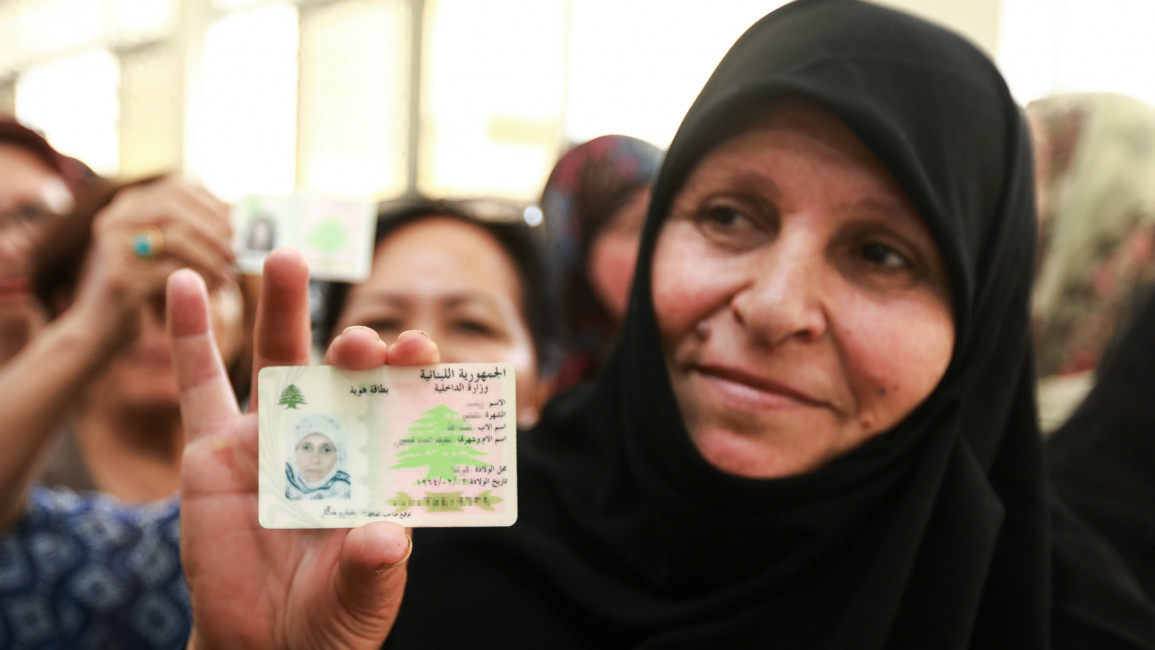Lebanon general election turnout 49 percent: minister
Lebanon general election turnout 49 percent: minister
Turnout in Lebanon's elections did not reach 50 percent.
1 min read
The voting turn out dropped since the previous election in 2009 (Getty)
Less than half of Lebanon's electorate voted in Sunday's general elections, according to a provisional turnout figure of 49.2 percent announced by Interior Minister Nohad Machnouk.
The figure marked a drop from the 54 percent of voters who cast a ballot in 2009, the last time Lebanon elected its parliament.
"This is a new law and voters were not familiar with it, nor were the heads of polling stations," Machnouk said in a news conference. "Voting operations were very slow."
Lawmakers had extended their own mandate three times since 2009, ostensibly over security concerns linked to neighbouring Syria's war and political divisions that led to long and crippling institutional crises.
A higher turnout had been expected after the long electoral hiatus but the vote was the first to follow a law passed in 2017 and the pre-printed ballots used Sunday appeared to confuse some voters.
With an hour to go before polling stations closed, several senior political leaders appealed for an eleventh-hour rush to the ballot boxes but stopped short of extending polling hours.
Experts differ on who would benefit the most from a low turnout as alliance scenarios varied across the country's 15 districts, whose size and sectarian fabric are all different.
The figure marked a drop from the 54 percent of voters who cast a ballot in 2009, the last time Lebanon elected its parliament.
"This is a new law and voters were not familiar with it, nor were the heads of polling stations," Machnouk said in a news conference. "Voting operations were very slow."
Lawmakers had extended their own mandate three times since 2009, ostensibly over security concerns linked to neighbouring Syria's war and political divisions that led to long and crippling institutional crises.
A higher turnout had been expected after the long electoral hiatus but the vote was the first to follow a law passed in 2017 and the pre-printed ballots used Sunday appeared to confuse some voters.
With an hour to go before polling stations closed, several senior political leaders appealed for an eleventh-hour rush to the ballot boxes but stopped short of extending polling hours.
Experts differ on who would benefit the most from a low turnout as alliance scenarios varied across the country's 15 districts, whose size and sectarian fabric are all different.


![President Pezeshkian has denounced Israel's attacks on Lebanon [Getty]](/sites/default/files/styles/image_684x385/public/2173482924.jpeg?h=a5f2f23a&itok=q3evVtko)



 Follow the Middle East's top stories in English at The New Arab on Google News
Follow the Middle East's top stories in English at The New Arab on Google News


